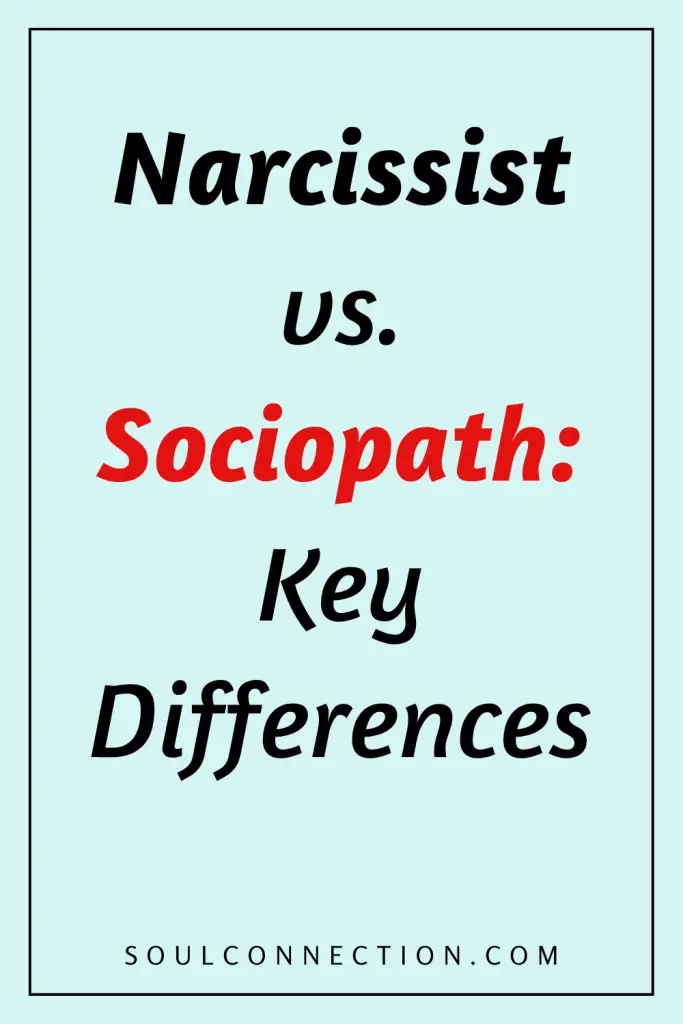Ever wondered whether that exhausting person in your life is a narcissist or a sociopath? You’re not alone. These two personality types tend to cause a similar level of chaos, confusion, and general whiplash.
Yet, their motives and methods are surprisingly distinct. Grab a cuppa (figuratively, not literally, I promise), and let’s get crystal clear on what sets them apart—no psych degree required.
Defining the Characters
Narcissists and sociopaths are both notorious for being difficult, but the roots of their troubles couldn’t be more different.
A narcissist lives and breathes for admiration. Self-importance is their life force. Grandiosity, entitlement, and a craving for validation are what keep their engines running.
Empathy? That’s likely gathering dust in a forgotten corner of their emotional toolkit.
A sociopath, meanwhile, has their own unique charm—or lack of it. Their central issue is a lack of conscience. Guilt and remorse tend to miss their appointments.
Manipulation is their game, and rules are merely suggestions.
Sound similar? At a glance, maybe. But their hearts beat (or don’t) for different reasons.
Origins and Causes
It’s not as simple as a bad childhood story or too many selfies.
Narcissistic traits often develop from a mix of genetics, upbringing, and social environment. Think of it as the perfect storm of overpraise, underpraise, trauma, or a genetic lottery ticket you’d rather not have won.
The world revolves around them because, somewhere along the way, they learned that it should.
Sociopathy, on the other hand, has roots a little deeper in the soil of genetics and early environment. The disorder is now usually called Antisocial Personality Disorder (ASPD).
Childhood conduct issues, neglect, abuse, or brain differences can lead to the sociopath’s signature lack of remorse. It’s less about seeking attention and more about having zero brakes on harmful behavior.
Motivation and Drive
Narcissists want to be adored. They want to be respected, envied, and worshipped. Every action is a step on the staircase to personal glory.
Did someone question them? Expect fireworks—or at least a dramatic sigh.
Sociopaths want to win. Their focus is on power, control, and personal gain. They’re not looking for applause but domination. If there’s a rule, it’s meant to be bent. If there’s a person, they could be a pawn.
Admiration is a currency for narcissists. For sociopaths, any currency will do—as long as they come out on top.
Emotional Range (Spoiler: It’s Not Vast)
Narcissists do have feelings, but they’re mostly about themselves. Wounded pride? Off the charts. Genuine empathy for your rough day at work? You might be waiting a while.
Their emotional landscape is self-centered, but it exists.
Sociopaths, on the other hand, are more emotionally barren. They can mimic feelings convincingly when needed, but it’s often skin-deep.
Sympathy, guilt, and affection aren’t natural. It’s like someone handed them a script to read at the party, and they’re hoping you don’t notice they’re just faking it.
Narcissists can seem dramatic. Sociopaths can seem chillingly indifferent.
Relationships: The Hot Mess Factor
Narcissists want relationships, but on their terms. They crave admiration, loyalty, and adoration, preferably with a side of endless patience for their quirks.
Their partners often feel like supporting actors in someone else’s blockbuster.
Sociopaths approach relationships as opportunities. Does this connection help them reach a goal? Great—they’ll charm, seduce, or manipulate as needed.
When the usefulness runs out, so does their interest. Commitment means little, unless it serves a purpose. Betrayal? Expect them to shrug it off like bad weather.
It’s less about love for both, and more about what you can provide.
Manipulation Styles
Narcissists wield guilt like an Olympic sport. Their manipulation tends to be emotional: gaslighting, guilt-tripping, love bombing.
If you ever feel like you’re on a roller coaster that only goes up when they’re complimented, you might just have a narcissist on your hands.
Sociopaths take a more clinical approach. They’ll lie, scheme, and orchestrate complex ruses without breaking a sweat. Their manipulation feels colder, more transactional. Pulling your strings isn’t about emotion; it’s a strategy.
Narcissists want you to worship them. Sociopaths want you to serve their needs, and they’re not fussed about your feelings along the way.
Honesty (Or Lack Thereof)
Truth is a flexible concept for both, but for different reasons.
A narcissist will bend the truth to make themselves look better. Lies are mostly about maintaining their image or avoiding blame. Embarrassing story? It gets a rewrite.
Sociopaths are habitual liars, but it’s about gain, not ego. Lies are tools, not shields. If the truth gets in the way of their plan, it’s gone.
Both are hard to catch out, but only one is likely to invent a whole new reality just to keep their self-image shiny.
Boundaries: What Boundaries?
Narcissists will trample your boundaries, but it’s often due to their lack of consideration. If it suits their needs for attention or validation, your “no” becomes a “maybe” in their heads.
Sociopaths ignore boundaries as a calculated move. If crossing a line helps them get what they want, the line simply disappears. There’s no remorse—just opportunity.
Both are exhausting, but only the sociopath seems to do it with clinical efficiency.
Reactions to Criticism
Narcissists crumble or explode when criticized. Their self-esteem is built on a shaky pile of approval. A well-placed critique can send them into a sulk or a full-blown rage.
Expect deflection, denial, or a monologue about how you just “don’t understand greatness.”
Sociopaths rarely care about criticism. It might register as an obstacle, but not a wound. Anger is possible, but only if it threatens their agenda. They’re more likely to quietly adjust their tactics than to throw a fit.
One takes it personally. The other views it as a detail.
Legal and Ethical Roadmaps
Narcissists might bend ethical standards, but they’re motivated by ego and attention. They’ll cut corners if it means admiration, but their law-breaking is often about self-image.
Sociopaths have a casual relationship with laws and ethics. The rules don’t apply if they stand in the way. They might break laws for profit, thrill, or just because they fancy it. It’s not personal—it’s business.
If you’ve got a rule-breaker in your midst, check their motives.
Impact on Partners
Being with a narcissist feels like living in a perpetual talent show where you’re both the judge and the audience—but never the star. Confusion, self-doubt, and exhaustion are common souvenirs.
A sociopath leaves a different kind of mark. The aftermath might involve betrayal, shock, or even legal trouble. Partners often feel used, discarded, or blindsided.
Both can turn your sense of reality upside down, but the scars tend to look a little different.
Can They Change?
Therapists everywhere just groaned.
Narcissists are famously resistant to change, but there’s a smidgen of hope—if they can recognize the problem. Insight is rare, though, as admitting fault isn’t exactly their hobby.
Sociopaths almost never change, at least not in the “grow a conscience” way. Therapy might teach them to act in their own self-interest more subtly, but a total transformation? You’d sooner win the lottery twice.
Self-help books are unlikely to do the trick here.
What To Do If You Suspect You’re Dealing With One
Start by protecting your sanity. Boundaries aren’t just recommended—they’re essential. Keep your sense of self strong and your expectations realistic.
Don’t engage in endless debates or try to “fix” them. Spare yourself the emotional hangover. Seek outside support. Friends, a therapist, or a hotline can help you keep your footing.
If your safety is at risk, put distance between you and the chaos as soon as possible.
Why the Difference Matters
Not all challenging personalities are created equal. Spotting the difference between narcissists and sociopaths can help you decide the right approach—whether it’s setting firmer boundaries, seeking professional help, or running for the hills.
Both can drain your energy, but knowing what you’re dealing with sharpens your instincts and saves you time and heartbreak.
Moving Forward with Confidence
Life with a narcissist or a sociopath isn’t for the faint-hearted, but you’re not powerless. With clarity, a hefty dose of self-respect, and a support squad to back you up, you can sidestep their worst tricks and keep your peace of mind intact.
When in doubt, trust your gut. It’s usually onto something before your head can catch up.


